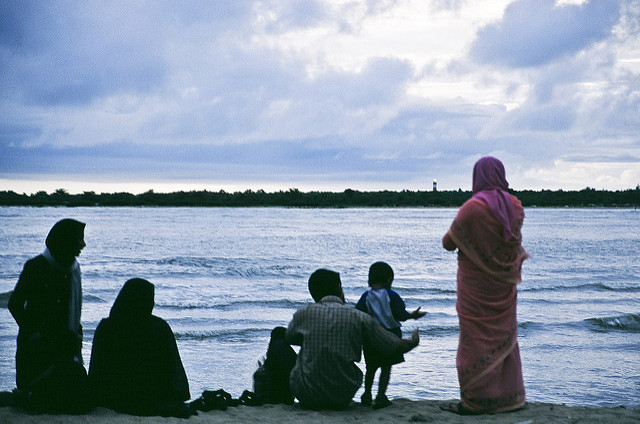What Is Islam’s View Concerning the Family?
 A detailed explanation regarding Islam’s perspective on marriage, family, and the general principles that govern familial relationships is beyond the scope of this letter. However, I will very briefly touch on some of the important topics.
A detailed explanation regarding Islam’s perspective on marriage, family, and the general principles that govern familial relationships is beyond the scope of this letter. However, I will very briefly touch on some of the important topics.
Islam recognizes marriage as the fundamental building block in the formation and the preservation of society. In order to organize humankind into societies, the Hand of Creation has split the human species into two genders, implanting in each gender an instinctive gravitation toward the other. The lowest manifestation of this mutual gravitation is the presence of distinctive sexual organs in the two. It is this mutual gravitation that brings the two genders together to beget children.
Out of this union a child is born whose substance derives from both parents. Due to the intense affection the parents feel toward this creature, they endure the pains of child birth and the hardships involved in rearing it. These difficulties savored by the accompanying emotional pleasure only serve to strengthen the emotional bond between the parents and the child, and this in turn invigorates the parents to multiply their efforts in training their child. These parental emotions, in return, attach the child ever more strongly to his parents. Thus, the family is forged—the building block from which cities and nations are constructed.
It is obvious that in order to preserve the society, the instinctive sexual drive must be curbed. The way to achieve this is by confining each gender’s sexual gratification to its formal partner from the opposite gender. This will ensure that the father of every child is identified (the mother, of course, is not in need of such a measure, as her pregnancy is the clearest mark that she is the mother of the infant she is bearing). Without such a formal arrangement to curb the sexual gratification of the two genders, young adults would seldom agree to suffer the hardships of forming a family. Absence of formal families would lead to uncertainty in determining the real fathers of children born into the society.
This uncertainty will in turn weaken the emotional bond between the parents and the children, which is the fabric that holds the family together. In time, the prevalence of fornication in society—in addition to the numerous hygienic, social, and moral problems that such unrestrained sexual relations engender—will utterly destroy family affections, a fact already evident in countries where sexual relations are given free rein—a trend that threatens the survival of humankind. An article I read some years ago reported that annually three hundred thousand infants are born to single mothers in the United States as the result of promiscuous intercourse done in the heat of the moment and without prior engagement.
Hence, Islam forbids sexual gratification between the two genders outside the institution of marriage and makes the expenses of rearing the child a responsibility of the father as the child’s guardian. In addition, Islam prohibits marriage between family relations who have frequent contact with one another. Thus, it is considered incestuous for a man to marry his mother, sister, aunt, or niece. The following are other females whom a man is prohibited to marry: daughter-in-law, mother-in-law, stepdaughter (if he has had intercourse with the stepdaughter’s mother), sister-in-law (as long as her sister is married to the man in question), and women married to other men. The same rule applies to the relations-by-suckling.7
(All of the rules mentioned here are derived from the Qur’an and the tradition of the Noble Prophet and the Imams as recorded in books of hadith.)
Source: Islam and the Contemporary Man; written by Allamah Sayyid Muhammad Husayn Tabatabai and translated by Dawud Sodagar

